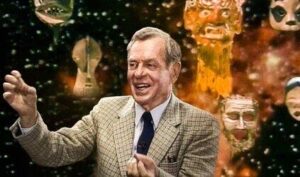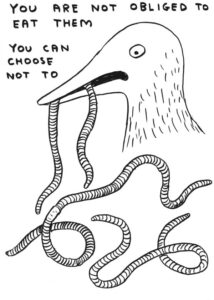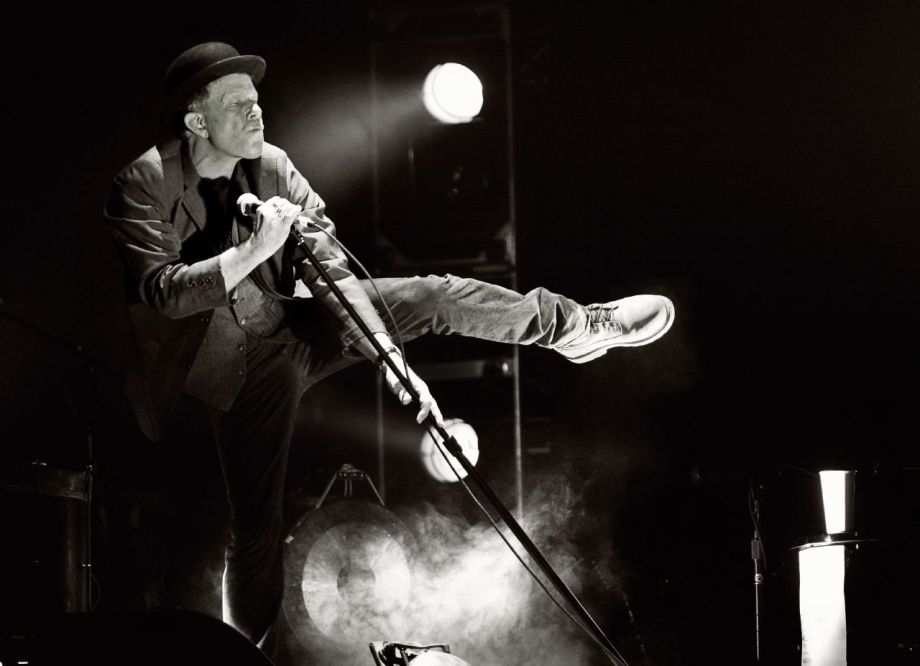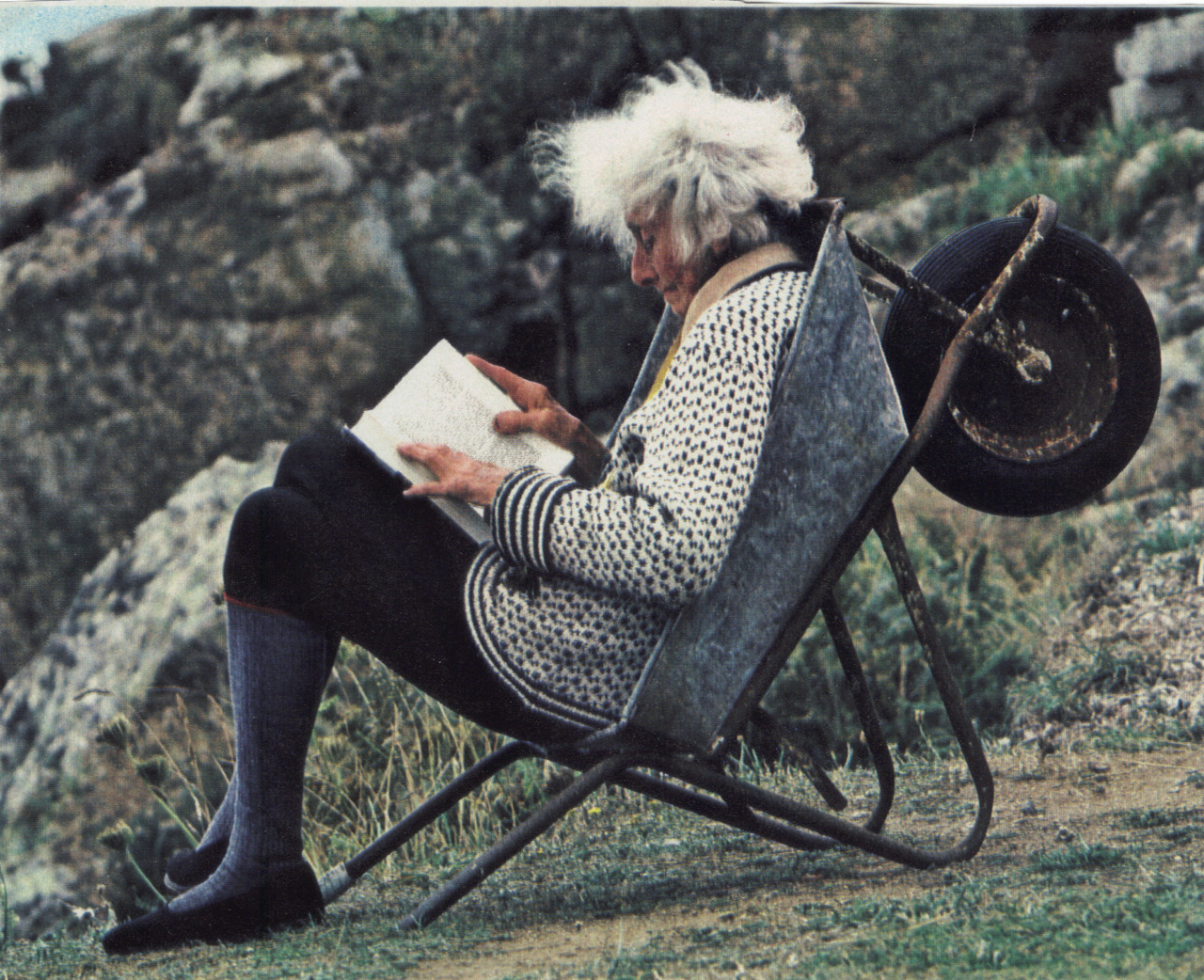00V of potential hindrances to our creative development continued…
In the last two articles I suggested that inspiration is something that is infinitely available to us, so long as we are available to receive it. I mentioned using our conscious awareness to direct our thoughts toward subjects that make us feel uplifted (versus troubled) so that we have a better chance of leaning back into a relaxed and open state to take in or notice new ideas and impulses. This choice to focus our attention on what we love and appreciate is what Joseph Campbell referred to as following our bliss:
“If you follow your bliss, you put yourself on a kind of track that has been there all the while, waiting for you, and the life that you ought to be living is the one you are living. Wherever you are — if you are following your bliss, you are enjoying that refreshment, that life within you, all the time.”
But what if we are a bit blind to our bliss or have trouble keeping connected to it? It seems natural to feel degrees of low vibes and tension throughout our day, but if we are struggling to achieve any relaxed state (even proper sleep), what then? How do we get beyond the constant bombardment of external demands and obsessive thinking? Campbell recommends what many artists do intuitively and that is creating a ‘sacred space’:
“[Sacred space] is an absolute necessity for anybody today. You must have a room,

Joseph Campbell. American mythologist, writer and lecturer, best known for his work in comparative mythology and comparative religion.
or a certain hour or so a day, where you don’t know what was in the newspapers that morning, you don’t know who your friends are, you don’t know what you owe anybody, you don’t know what anybody owes to you. This is a place where you can simply experience and bring forth what you are and what you might be. This is the place of creative incubation. At first you may find that nothing happens there. But if you have a sacred place and use it, something eventually will happen.”
Carving out the time and space for self-grounding might be slippery. All sorts of wills inside us (or outside us) may reject the possibility with accusations of selfishness or some excuse. I used to be super resistant to any hint at a routine. I realize now that this had more to do with the cagey feeling I got when people told me what to do; I associated routine with ‘shoulds’ and those always put a bad taste in my mouth. I now understand the upside of integrating my own personal habits when they offer a base rhythm to help me direct my awareness and intention; like a back-up droning to support a complex melody. I currently write an hour after I wake up, I make sure I get outside and stroll around aimlessly with my dog, and I try to get in a night bike ride if the weather is friendly. It’s as if by being somewhat practical, I am able to more consistently open the gates to mystery and chaos. As Haruki Murakami says it:
“Yeah. I go to my unconscious. I have to go into that chaos. But the act of going and coming back is kind of routine. You have to be practical. So every time I say, if you want to write a novel you have to be practical, people get bored. They are disappointed.” He laughs again. “They are expecting a more dynamic, creative, artistic thing to say. What I want to say is: you have to be practical.”

David Shrigley. http://davidshrigley.com
I gotta emphasize how important it is to experiment with your own individual routines and rituals. The timing and the place will be very particular to you. There are all sorts of practical shoulds out there regarding how other people do it. I have been repetitively advised to get up early with an early bird gets the worm lecture but when I follow this order I have to push through a fog all day and I don’t even want a worm. In the 2014 documentary film, Iris, interior designer and fashion icon Iris Apfel tells us that she used to struggle to arrive early at estate sales. Then her husband pointed out that the things she wanted at these sales were what no one else would touch so she was perfectly fine to arrive late. Removing any should aspect/resistance is going to help tailor a personal sacred space; whatever way you do it is the right way.
So let’s say that we have created the time and space to connect with our true wonders but still feel that our channels aren’t open. Even if we have done the practical work, we have to remember that inspiration and creativity are essentially a non-practical domain. One thing that has helped me in my multi-media practice (and it’s a really old idea) is actually speaking with inspiration. As I have admitted before, I am convinced that I am some sort of medium for my works to come through into existence and so I perceive ideas as independent somethings (entities? frequencies?…) with their own traits outside of myself. I once wrote a series of letters to my studio space just sharing my thoughts and asking it all sorts of questions. I have also given a name to some trickster presence in my work and have conversed with it. This would lead to new ideas bubbling up in my thoughts or I would notice outside links that sort of connected the dots. This may sound a bit phantasmic but I now know that this is a form of what Carl Gustav Jung referred to as ‘active imagination.’ I take it as a playful and individual approach to mysterious invisible forces and worlds that I cannot grasp or pin down in any rational sense.

Tom Waits. Photo taken from tomwaitspodcast.wordpress.com
Nearly all of the artists that I am fond of relate to inspiration as an external phenomenon that is recognized by a personal conscious awareness. Perhaps this foreign realm is what Jung (and Murakami above) referred to as the unconscious. Personally I don’t feel the need to argue it as a literal fact, it is just another way to direct my attention that leads me to the most possibility. Singer songwriter Tom Waits is famous for characterizing his work as something originating outside of himself. He expresses this in a GQ interview by Elizabeth Gilbert:
He believes that if a song “really wants to be written down, it’ll stick in my head. If it wasn’t interesting enough for me to remember it, well, it can just move along and go get in someone else’s song.” “Some songs,” he has learned, “don’t want to be recorded.” You can’t wrestle with them or you’ll only scare them off more. Trying to capture them sometimes “is trying to trap birds.” Fortunately, he says, other songs come easy, like “digging potatoes out of the ground.” Others are sticky and weird, like “gum found under an old table.” Clumsy and uncooperative songs may only be useful “to cut up as bait and use ’em to catch other songs.” Of course, the best songs of all are those that enter you “like dreams taken through a straw.’ In those moments, all you can be, Waits says, is grateful.
If we’ve already established some sort of bliss nook and have felt fully inspired (in a flux way), what happens when we feel we’ve totally lost it or have to be creative on demand?
Intellect takes you to the door, but it doesn’t take you into the house.
– SHAMS TABRIZI
[Title image: source unknown– anyone know it?]
*Disclaimer: No copyright infringement intended. I do my best to track down original sources. All rights and credits reserved to respective owner(s). Email me for credits/removal.
